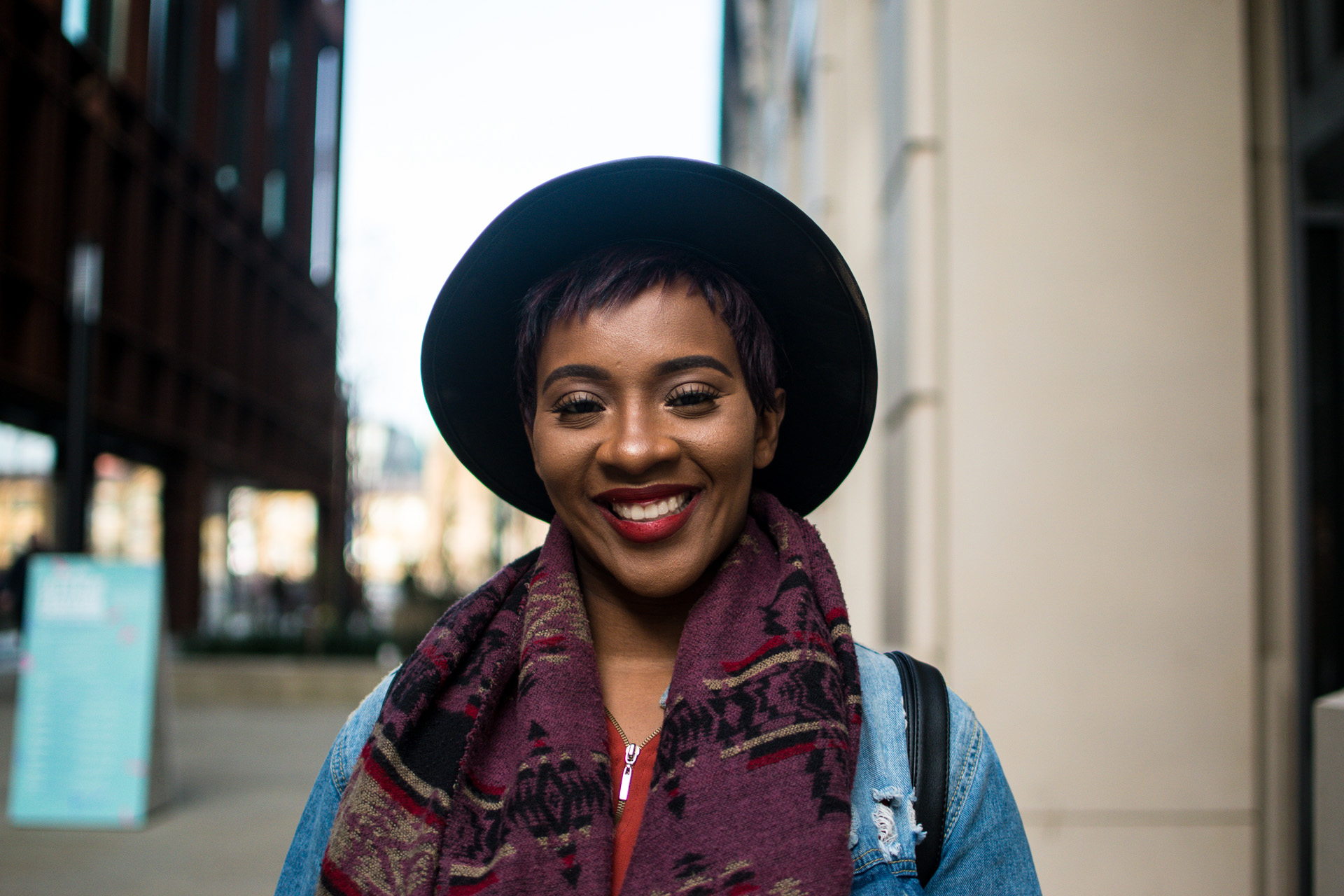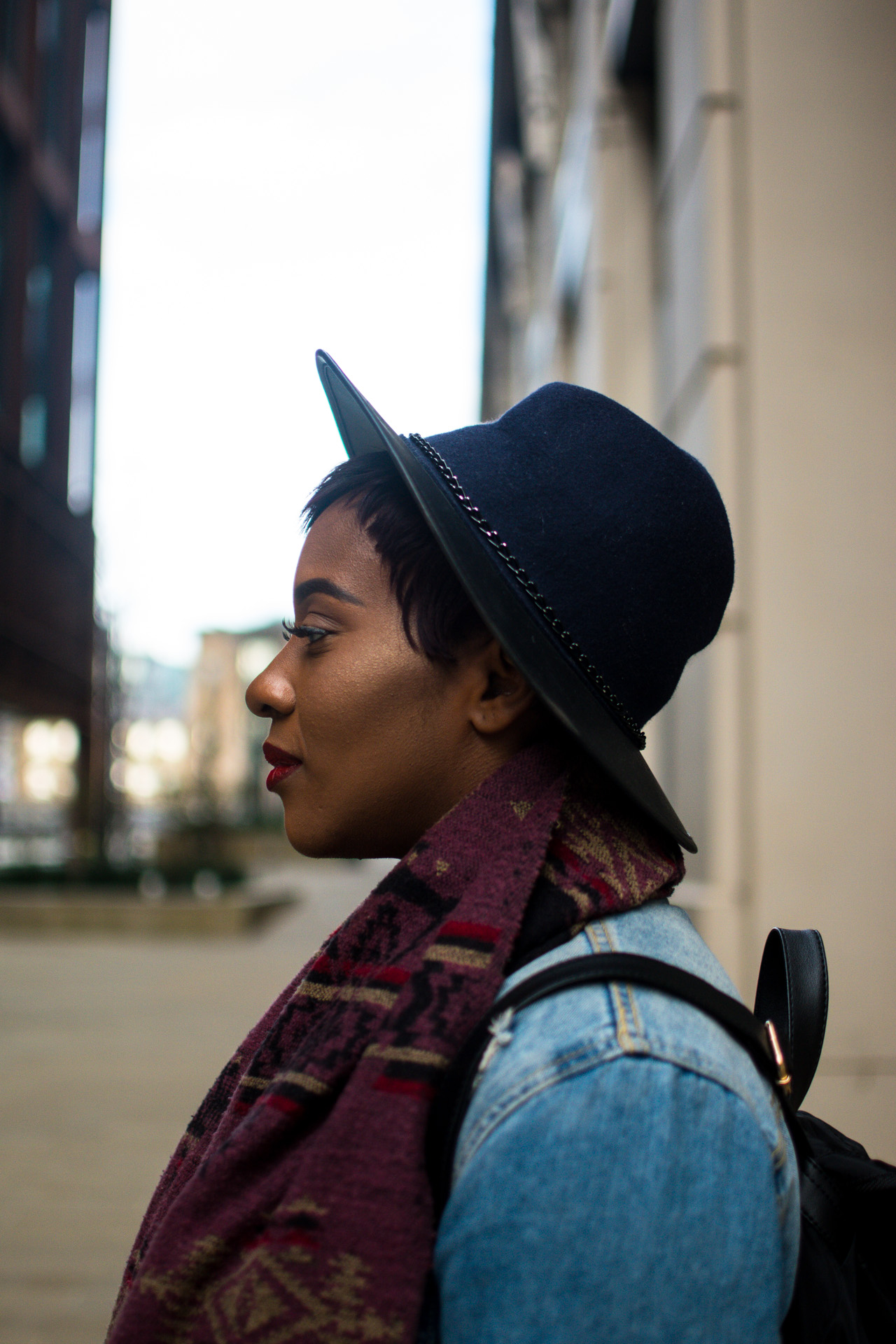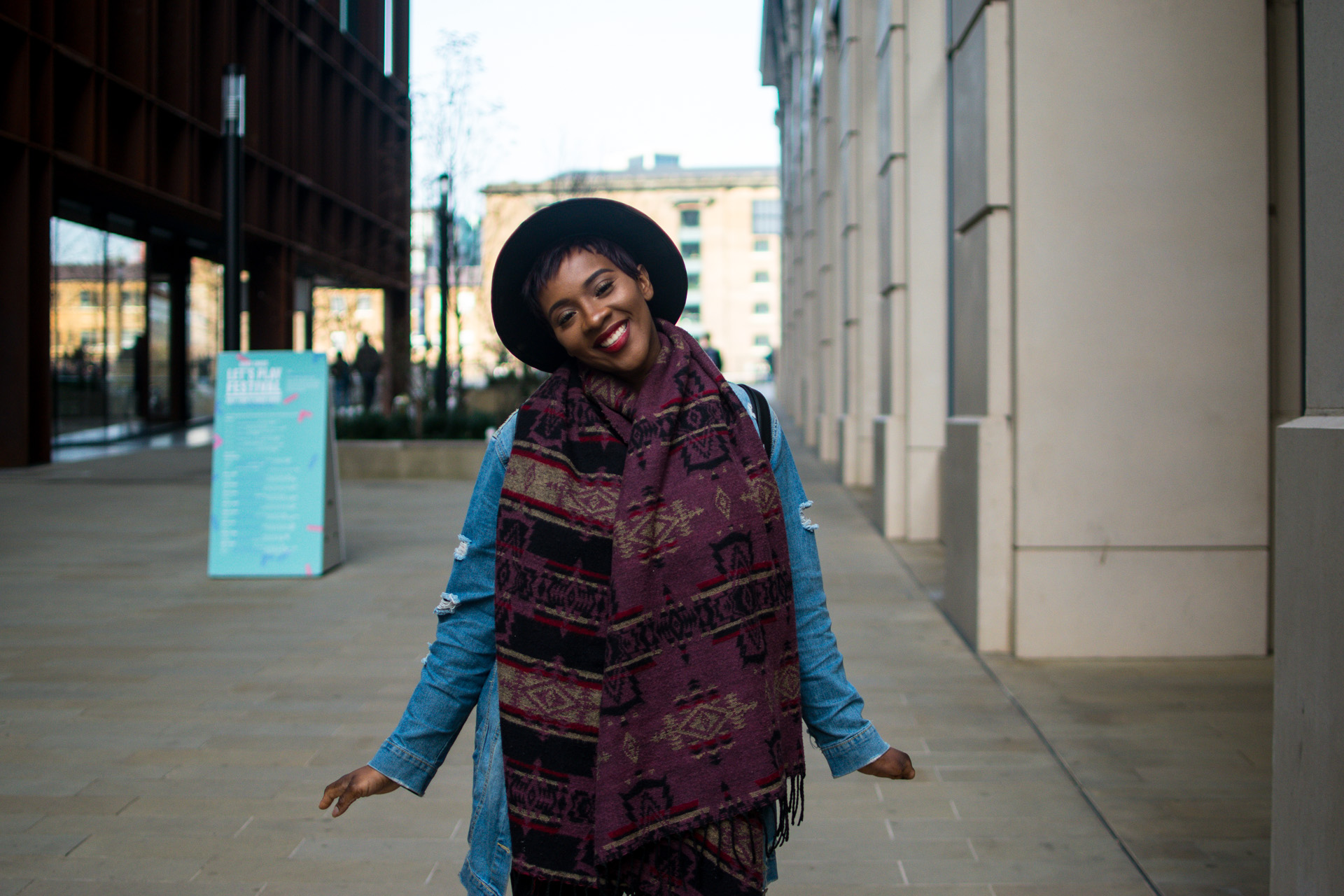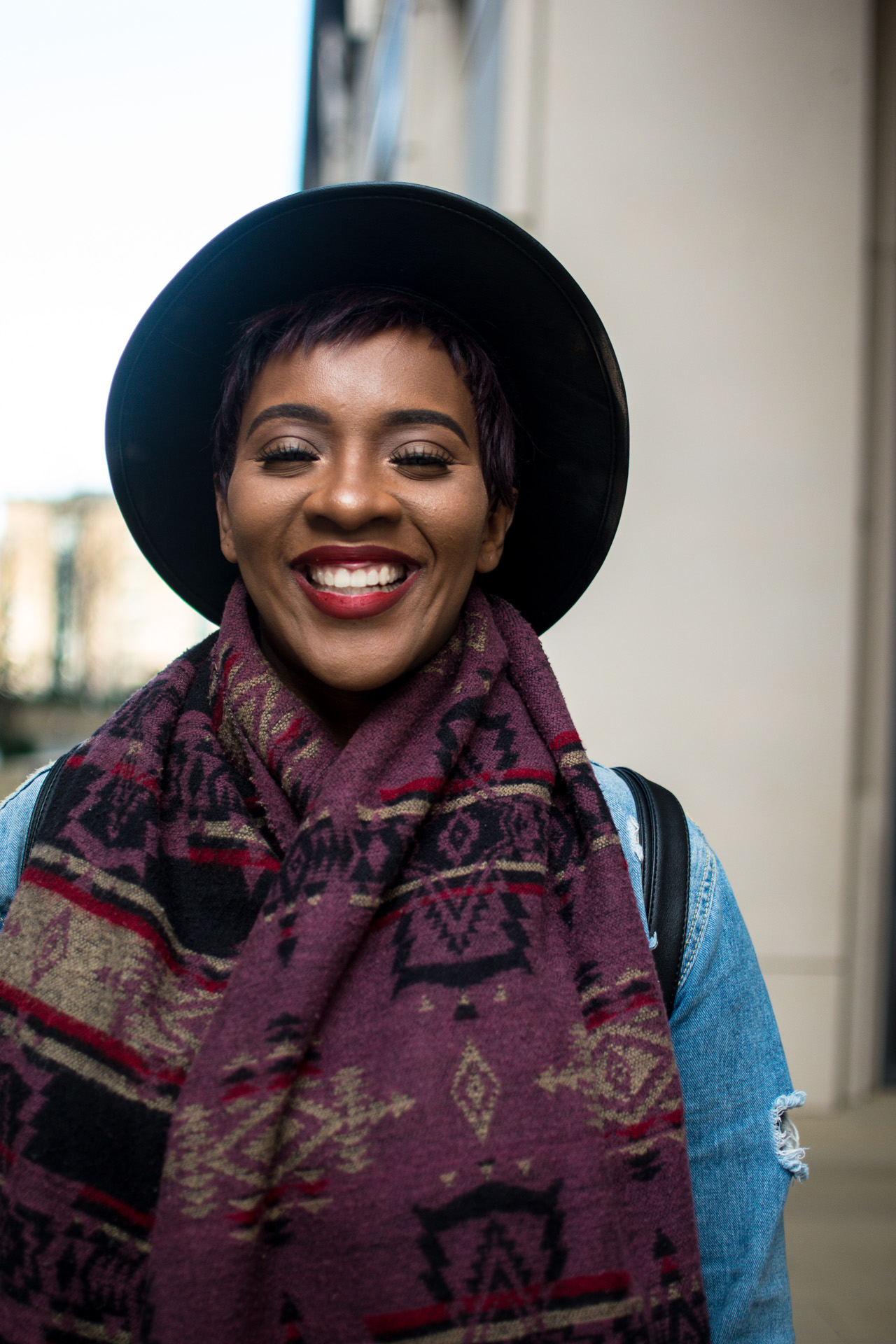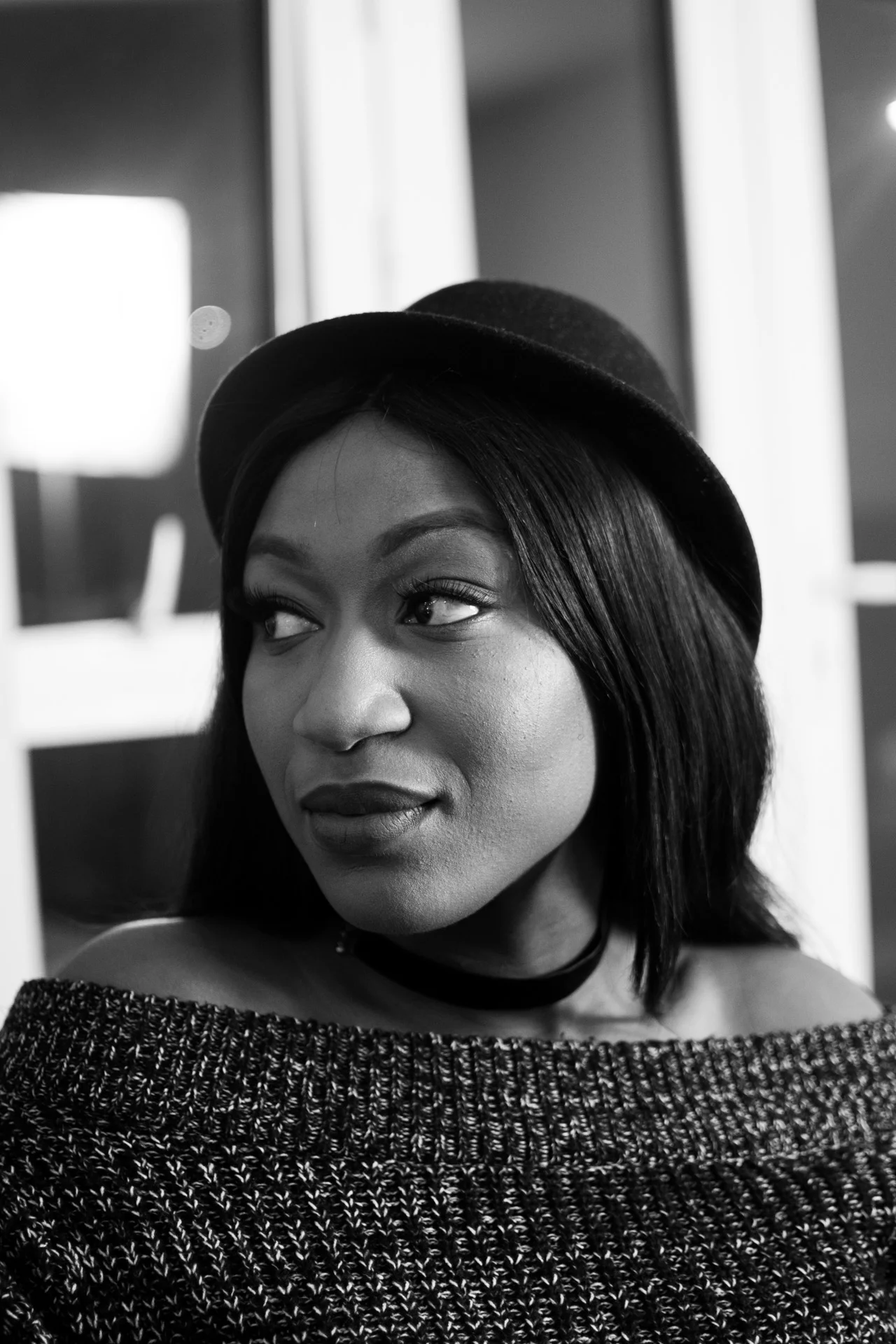Nyime
Nyime, 31
Nigerian ethnicity: Yoruba, Igbo, Eleme
City/County grew up in: Manchester
City/County of residence: Hertfordshire
*audio below
Describe your heritage
My heritage is Black British Nigerian born to Nigerian-British parents in the UK.
What to you, makes you Black British Nigerian? How do you define it?
What makes me Black British Nigerian, is for me my heritage, my culture. Even though I was born and raised in the UK, the culture that was set in my home is really what defines who I am. So I identify as British, but my parents carry the culture of Nigeria, so that’s what I am very familiar with and feeds into my identity as a Black British Nigerian.
What challenges do you/have you faced that relate to your identity as a Black British Nigerian?
I think the main challenge has been having that kind of duality to your identity. So at home you step into Nigeria in a sense because your parents are Nigerian, but obviously outside, you’re in Western-British society. You meet and you relate to and interact with people who are British and sometimes there’s a clash between the values of the different cultures. I guess adding into it religion or Christianity as well which informed a lot of my values and the way my parents raised me, including being Nigerian, you find that sometimes there is a bit of a clash between the British culture and the Nigerian culture. So I think that’s the main thing.
Also obviously I was born in the UK, but I don’t necessarily fit in here completely because of the colour of my skin (inevitably), and also my heritage is not necessarily indigenous to this land, so even though people ask you where are you from and you say ‘Britain’ or “British”, they’re like “Where are you really from?”. In a way you don’t wholly fit into the Nigerian way of life because I don’t necessarily speak the language – if I was to go to Nigeria, they’d be able to sell me as they say *chuckles* because I don’t understand the language. But ultimately it’s like you don’t really fit in either or completely, so I think that’s probably the main thing.
What do you love about being Black British Nigerian?
Quite a lot of things actually. I love being Black, I love having the rich heritage that we have, I love exploring what that looks like or seeing the expression that that has in the UK as well – I feel like the way Black people do things is just lit to be honest *laughs* - everything about our culture, the food, just the kind of intricacies of the way we do things, the ways we relate to each other, I feel like it’s amazing. But also to see that [there’s] a thriving Black British community here as well, and feeling a part of that because we all kind of have or share similar experiences and similar life stories. So in way, I guess I wholly fit into that narrative. So yeah a lot of things.
I love the way we have that kind of Nigerian strength and that Nigerian fortitude to succeed and to do well in life, to overcome hurdles and obstacles that we’re faced with in this society because it’s not easy being Black in the UK. It could be worse, I mean we’re not living in America at least, but it’s not easy, so I feel like having that is really empowering. But then I guess also having a slice of the Western pie...I guess there are benefits to living here as well.
Do you think this country values your identity?
I think they’re starting to value it. I don’t think it has always been valued. I think it’s taken some time, but I think we’re living now in a more multi-cultural society where I guess the country is more accepting of the diverse nature of people that live here. I think there’s still a long way to go. However I think it’s better than it was before, there has been progress, but I feel like people are open to dialogue really and hearing people’s experiences and hearing people’s journeys and I think that kind of helps people live in an environment where there’s understanding, if that makes sense, rather than seeing a particular people group, not interacting with them for reasons such as they’re just not found in your friendship groups. I feel like people are now more inclined to find out about your heritage [and] who you are as a person, a Black British Nigerian. So I feel like society does value it to a degree but there is quite a way to go.
What does the future look like for Black British Nigerians - what are your hopes for us?
I think the future is very bright for Black British Nigerians. I think for the most part we’re embracing our dual identity, and I think we’re recognising that we can’t really fit in either box, but that’s okay in a sense, we can kind of create our own thing. And I think that we have a lot going for us; I think this generation is forward-thinking, this generation is about making things happen and getting things done and really seeing positive change in the world, and I feel like Black British Nigerians are at the forefront of that as well. So I think the future’s lit, the future’s bright and I’m excited. I’m excited for the good things that are to come from us as a people, the ways that we’re going to continue to break barriers and just continue to inspire not only ourselves but people around us as well. So I’m excited.




